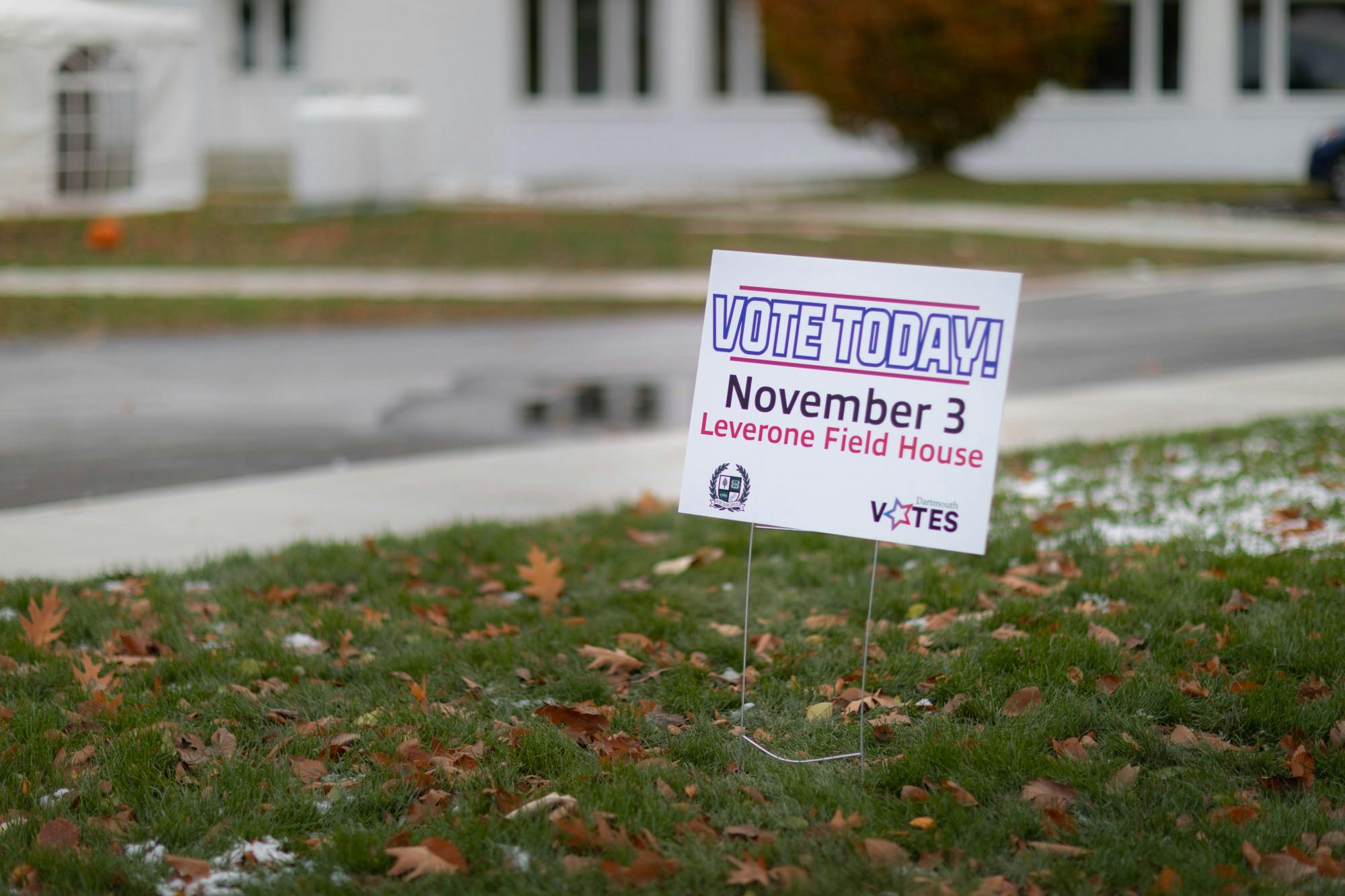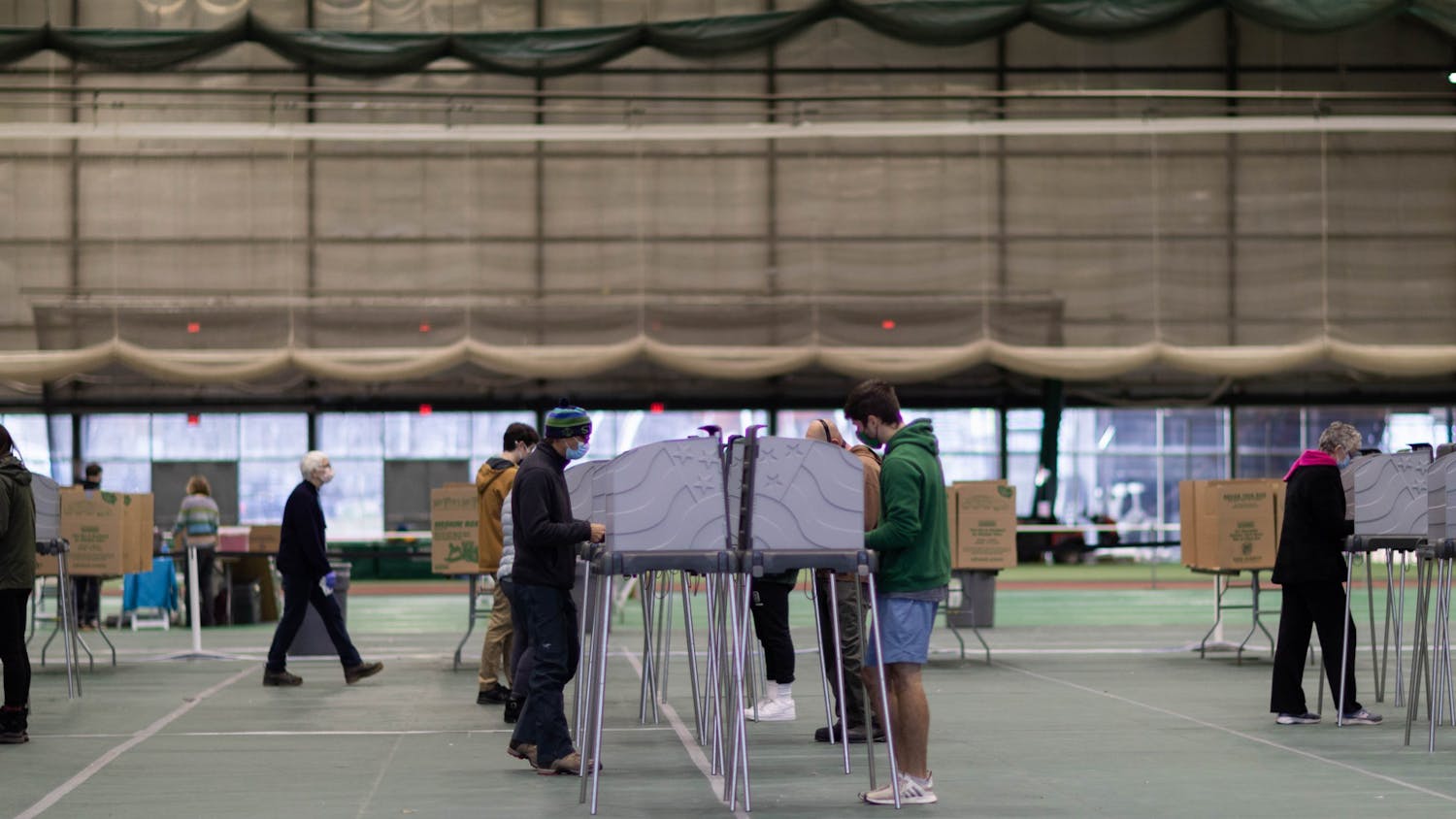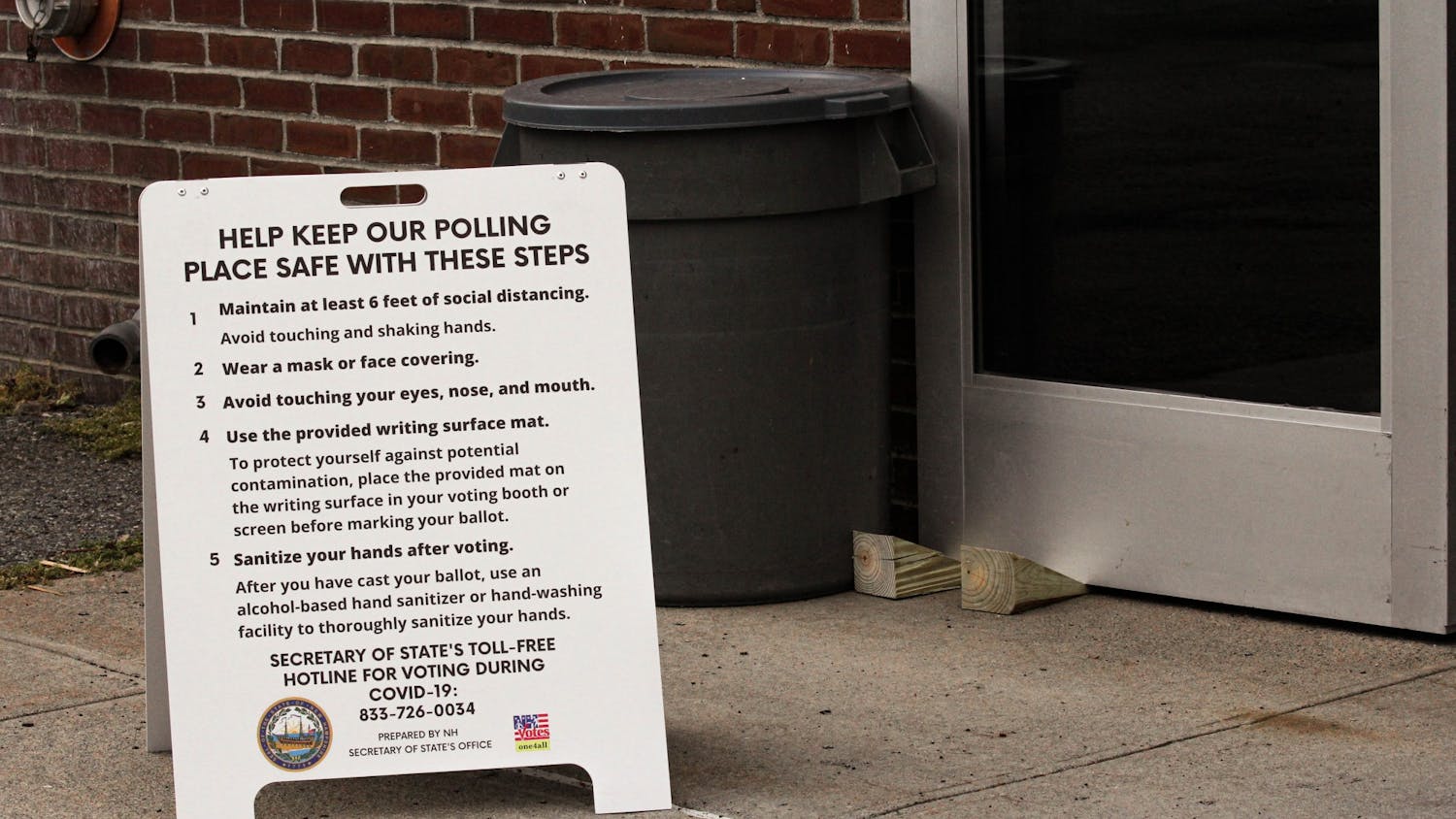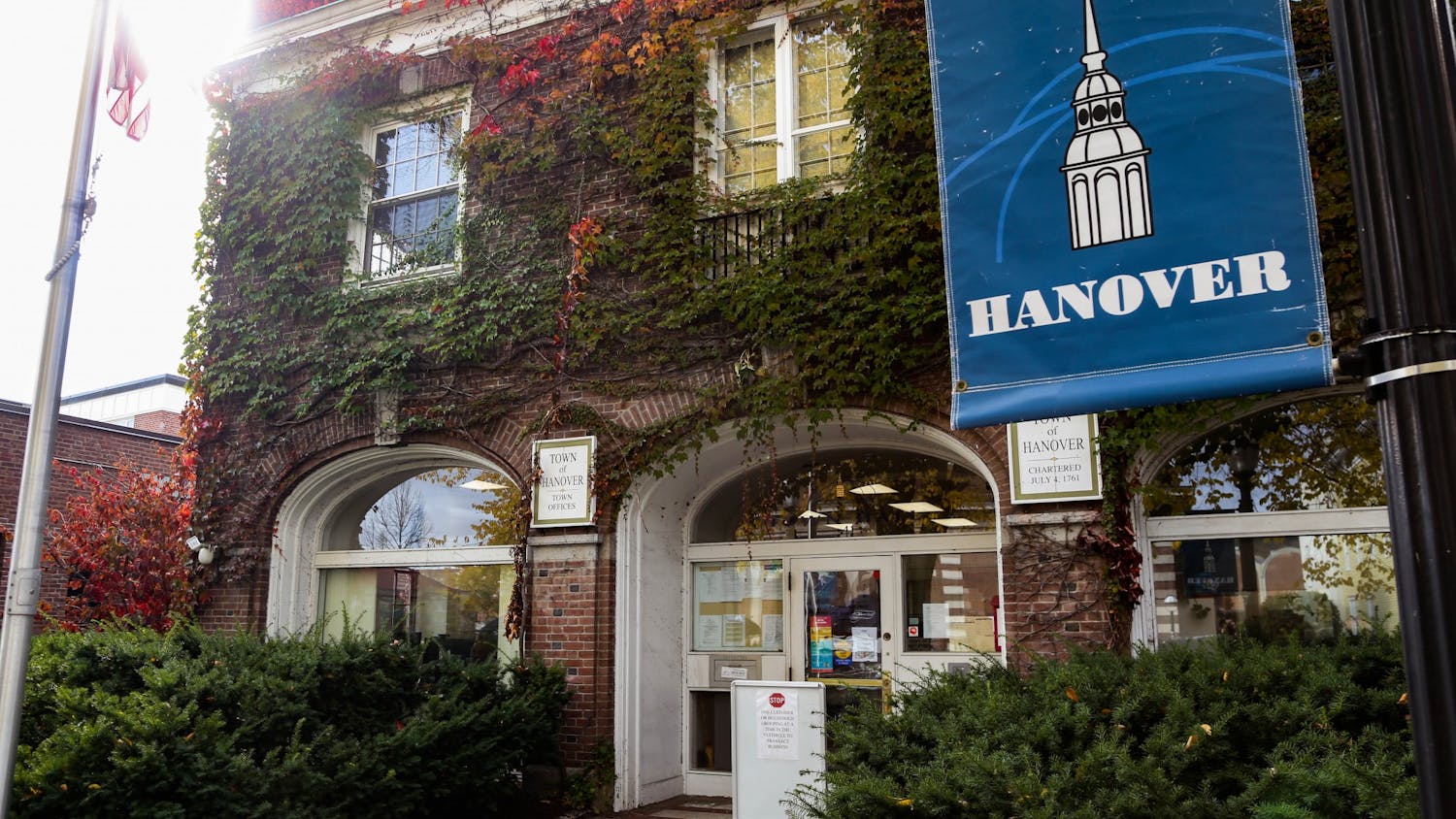Carefully planned COVID-19 guidelines ensured smooth in-person voting experiences on Election Day in Hanover and surrounding towns. Aside from early morning lines, wait times did not differ significantly from previous years, even with precautions such as temperature checks and voting booth sanitization.
Donning face masks and maintaining social distancing, Hanover voters cast their ballots at the Leverone Field House. Town moderator Jeremy Eggleton said that people were largely compliant with public health guidelines, with the exception of some unintentional mishaps.
While there was some initial confusion as to whether students living off campus could vote in Hanover, Eggleton said these instances were resolved on a “case-by-case basis.” Students registered to vote in Hanover who are living in surrounding towns due to the College’s return-to-campus plan were eligible to cast their vote in Leverone, according to Eggleton.
In Hanover and several other polling stations in the Upper Valley, pandemic precautions included plexiglass screens between voters and poll workers, one-way traffic throughout the building and sanitization of polling surfaces after every voter.
Lyme town moderator Kevin Peterson ’82 said the decision to require masks at the polls was up to the moderator in each city and town. Peterson said that state epidemiologist Benjamin Chan helped to provide additional guidance for COVID-19 protocols at the polls, and all town moderators have been meeting with the Secretary of State’s office and the Attorney General’s office for weekly training leading up to Election Day.
Lebanon, New Hampshire’s moderator, Crystallee Newton, said that voters were cooperative with the COVID-19 regulations. Another Lebanon moderator, Kristin Swan, said that voters seemed more comfortable with the COVID-19 regulations after voting in the primaries.
“It's been great. It's actually been even better than in the primary,” Swan said. “I think people know a little bit more what to expect and where to be.”
Polling places also offered options to vote outside or in an isolated room or hallway for individuals who were unable or unwilling to wear a mask.
As of an hour before polls closed, only two people cast ballots from these alternative locations in Lyme, and none chose to do so in Lebanon.
There were also no security challenges at local polls. In Lyme, Peterson said that there were no instances of people being “unruly.” He added that election officials spoke with law enforcement ahead of time to address security concerns, and portable radios could be used for communication between poll workers and dispatch.
Despite COVID-19, polls saw similar numbers to 2016, or in some cases, even higher turnout. Current Grafton County commissioner and Dartmouth writing professor Wendy Piper, who is running unopposed for reelection this year, said that she had not seen a decrease in voter turnout due to COVID-19. However, many more voters than usual opted to vote through a mail-in ballot to decrease their chance of exposure to the virus.
“I don't think that [the virus] deterred voters at all,” Piper said.
Hanover saw a total of 7,171 votes cast, which Eggleton said is down from around 8,000 in previous years. He said these numbers align with the fact that only about half of the undergraduate student body is currently on campus.
In neighboring Lyme and Enfield, numbers were higher than previous years. Peterson said that the town likely experienced a “record-setting day” for voter turnout in Lyme, and Enfield town moderator Lindsay Smith said there were 2,793 votes cast in Enfield — up from the previous high, around 2,400, set in 2008.
The number of absentee ballots in Enfield increased almost ten-fold from 2016, which created initial challenges while processing votes. Smith said the machine that processes ballots initially struggled with creases and folds in the mailed-in ballots and that a second machine was needed to ensure the in-person voting line was not disrupted. While a handful of ballots required hand counting, every single absentee ballot was processed, Smith said. Enfield also had double the number of ballot clerks working compared to 2016, which helped expedite the process.
“It takes a community, and I’m really proud,” Smith said, referring to Enfield’s election team. “It's democracy and action; it's such a beautiful and powerful thing.”

Manasi Singh '24 is from Cincinnati, Ohio. She is majoring in anthropology and politics, philosophy and economics. At The Dartmouth, she wrote for news and Mirror but later transitioned to the business staff. Manasi now serves as the Publisher.




